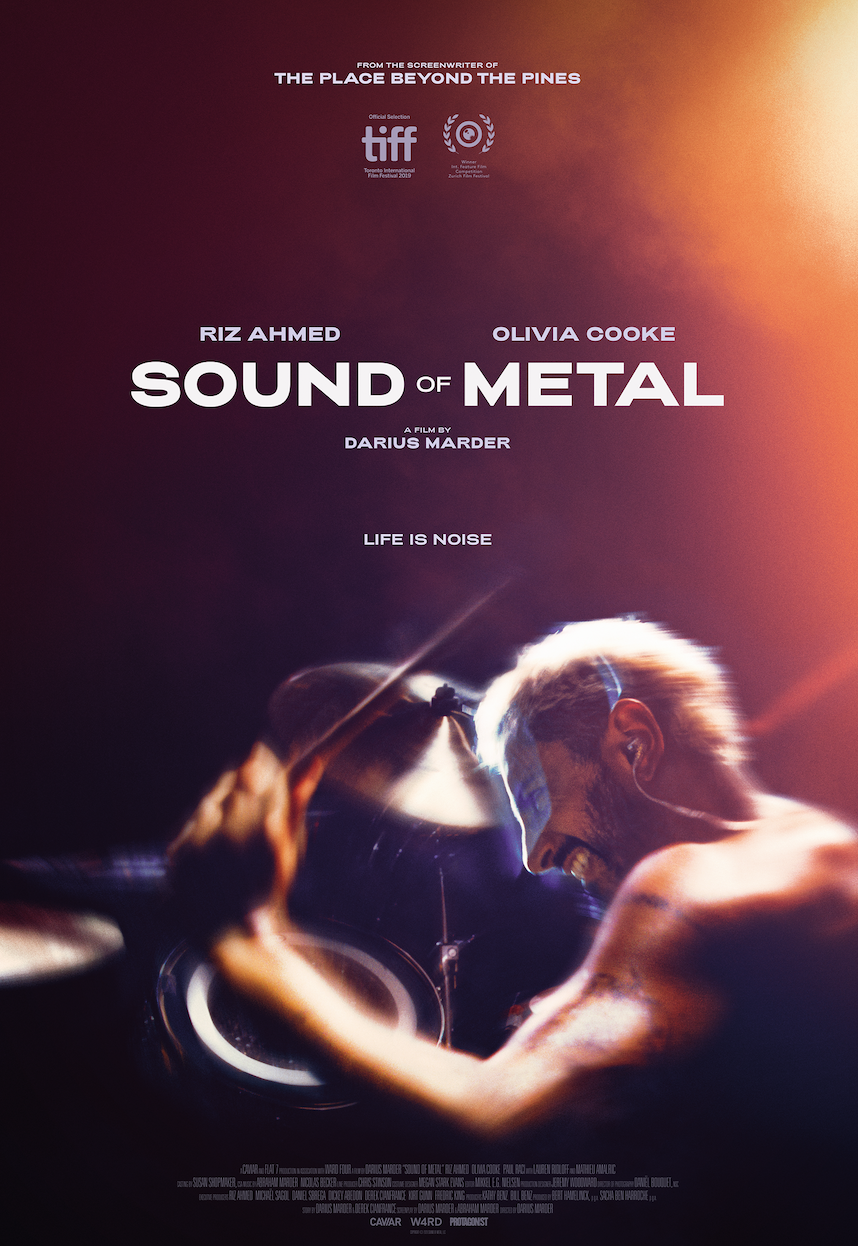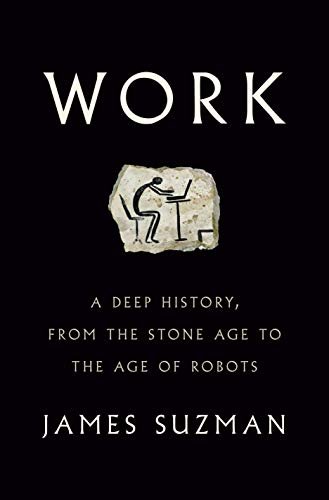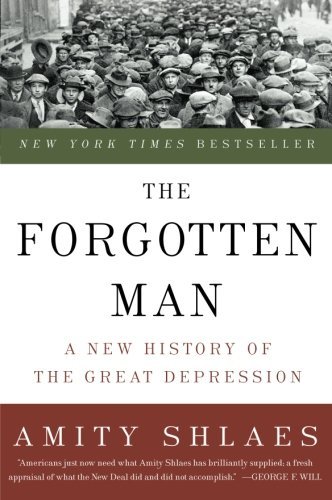Back in January, my wife and I had our third child. Young infants have no circadian rhythm which means they wake up - and want to stay up - at all hours of the day for the first couple of months. When we had our first kid, the sleep deprivation was terrible because I hadn’t figured out any coping techniques to deal with the new demands on my time and energy. But I quickly found my outlet: movies. I have a film degree and it has been very satisfying to get to binge all sorts of arthouse movies without having to compromise with anyone else. With baby #3 now sleeping through the night on a semi-regular basis, I’ve put together a summary of what I’ve watched, what I liked and what I didn’t.
First Cow - 10/10
This movie is equal parts tender and brutal. It portrays that rarest of things: a friendship between men that feels sincere and empathetic without having the characters ostentatiously assert their heterosexuality every couple of minutes. It’s also much truer to life than most period films and it gets the little details right in a consistent way that quickly sucks the viewer into the world of the story. I would have rated this an 8/10 except the ending was just incredible. This isn’t an over-the-top film. Truthfully, it’s a bit slow, but it’s worth being patient to savor it (pun intended).
The Green Knight - 10/10
Buckle up and make sure to view this on a big screen because David Lowery’s adaptation of the Arthurian legend of Sir Gawain and the green knight is equal parts fever dream and visual poetry. Also, do yourself a favor and at least read the Wikipedia article about Sir Gawain before watching — you’ll be glad you did.
Okay, now that you’re watching on a big screen and have refreshed your memory about the court of Arthur, why does this get a 10/10? The critical consensus was ambivalent here: some loved it, others hated it. And to be fair to critics, there’s a lot to hate. The story rambles a bit, our protagonist isn’t the classical good guy, and the writers have taken substantial liberties with the source material.
At the end of the day, though, I can’t help but love this, warts and all. First, it does what I love so much in the cinematic format: it uses imagery and film construction to weave additional layers of meaning over an otherwise didactic morality play. And those layers of meaning are downright beautiful to behold. And then there’s the ending. I won’t spoil it for you, but sufficed to say, viewers are empowered to read into the events of the conclusion whatever they want. It’s the best kind of conversation starter: what did it all mean?
I can’t wait to re-watch this to catch all the details I missed the first time through.
The Father - 9/10
As we live longer and more of us are confronted with the ravages of Alzheimer’s and dementia, this film feels extremely timely. While there aren’t many films that tackle this difficult topic with any seriousness, The Father stands out among the few by telling the story through the mind of the patient. That simple narrative device makes all the difference. Viewers are left with an abiding emotional understanding of what it is to have your own mind betray you. The narrative discontinuities force viewers to piece together what is and isn’t real and what appropriate reactions are given a deeply unreliable narrator. There are no good solutions and whether you judge Olivia Colman’s character or Anthony Hopkins, you end up realizing that traditional narrative evaluations of morality probably aren’t appropriate anyways. Aging, dying, and love are messy, and I came away loving, hating, and hurting for all the people portrayed.
Cold War - 9/10
I’m a sucker for black and white films. I’m also a sucker for foreign films that eschew traditional Hollywood narrative tropes. And you know, if you’re gonna make a black and white foreign film, why not double down and have it set in eastern Europe for maximum depressive effect?
Kidding aside, I loved Cold War. I didn’t necessarily love the people portrayed, but I loved the film. From a purely technical standpoint, it’s beautifully well made. The shot composition is immaculate, the framing tells us more about the story than the dialog, and the director trusts the viewer to make sense of a nonlinear story (and what love story outside of the confines of Hollywood is ever completely linear?). It isn’t redemptive or revolutionary. It won’t change your approach to love, life, and the universe. But it’s terribly sincere, compact, and well-made.
Nomadland - 9/10
I love Francis McDormand and this is, in my opinion, one of her best films. It perfectly captures the ethos of a time and place that is largely invisible to most Americans today. While we might regularly interact with the shape of these stories every time we open an Amazon package, the people behind the logistics and supply chain wizardry remain intentionally obscure. But that world is real, their loss is devastating, and the effects of those living in marginal circumstances are increasingly making their voices heard and felt. This film perfectly encapsulates a much bigger topic about mobility, wealth disparity, and dwindling opportunities in a simple down-to-earth way. The only reason it doesn’t get a 10/10 is that it’s conclusions are too bleak even for me.
Mass - 9/10
School shootings have become commonplace in America. When I was in school, the Columbine shooting made headlines and there was a decade of public hand-wringing, witch hunts, and confusion. If you had told my younger self that society would have mostly swept the issue under the rug even as it became more pervasive, I would not have believed you.
I think this is why I love this movie so much. Mass does the opposite of sweep school violence under the rug: it puts the pain, bewilderment, and fury front and center so that you cannot avert your eyes. And it is also remarkably fresh in that it tackles the part of the story that’s too sensitive for new cameras to ever capture: the personal struggles of parents seeking to find peace and move on years after the media firestorm blows over. It’s got all the tension of a modern day 12 Angry Men, but the stakes feel more immediate.
Woman at War - 9/10
I tried watching this movie a couple of years ago, but gave up just a bit too soon. This time around, I made it through the weird narrative slowdown around the 20 minute mark and made it to the awesome payoff that starts in the middle and builds until the last couple of minutes. The ending is absolute gold. Right when you are settling into the falling action, waiting for a subdued conclusion, you get one final narrative jolt of excellent, plausible, joyous fate. The quote from Variety is spot-on: this movie is nearly perfect. It’s got laughs, drama, tension, and meaningful stakes. It also has an answer for the never-ending question of personal responsibility for climate change. Where other documentaries and nonfiction books tend to end this coverage of the issue with mealy-mouthed platitudes about international cooperation and political responsibility, this movie presents one very concrete solution that individuals could undertake — even if it’s a tad bit illegal.
Quo Vadis, Aida? - 9/10
I was a bit too young to be aware of the Srebrenica massacre when it occurred in 1995. I remember my dad listening to NPR and hearing endless coverage of the issues in Bosnia, but it was practically another planet from my day to day existence. And even if I had been older, this movie would have been difficult to appreciate before I became a parent.
So often, war movies focus on heroism on the battlefield: bullets fired, trenches stormed, enemies killed. War as a human experience encapsulates those stories, but today with Ukraine under siege by Russian forces, the events depicted in Quo Vadis, Aida? are eerily prescient.
Ultimately, this is a story of loss. It documents the effort of one person to avert the end of her world and all the immediate family within it. The chilling conclusion is an unforgettable testament to the evil and resilience of humanity.
The Sound of Metal - 9/10
If you liked CODA, but you wanted less of a Young Adult treatment of deafness, loss, and integrating in a hearing world, you should take the time to watch The Sound of Metal. It’s a beautiful and realistic depiction of how our senses are integral to our personhood and what it means to suddenly and unexpectedly become someone else when one of those senses fails.
And just like CODA, the ending is amazing in large part due to the movie’s sound design choices. Both films subvert the traditional climax and resolving action of the storyline in favor of an immersive experience of otherness. It’s hard to take your hearing for granted after watching this one.
Uncut Gems - 9/10
Uncut Gems is simultaneously amazing and unbearable. As someone who is very financially conservative, I was almost incapable of watching Adam Sandler piss away opportunities for prudent gain all for the opportunity to win big. But unlike other movies in the genre (gangster films? suspense thrillers?), Uncut Gems remains grounded in reality for the entire duration of the story. There are no hero boss fights, no improbable getaways, everything feels believably twisted. I would have given this a 10/10, but the sound design is really out there and detracts from the experience. I had the same complaint about There Will Be Blood. Just because a movie has artistic aspirations, doesn’t mean the soundtrack has to hurt viewer’s ears!
The Worst 10
See above if you want to watch good movies, but it’s also valuable to avoid watching bad movies. Below are the worst of the 68 movies I watched and short explanations:
The Mountain II Don’t let the IMDB rating fool you, this movie is awful. I think it’s supposed to be nuanced or something, but the writing is bad, the direction is worse, and the characters are like cardboard cutouts. I think I turned it off after less than 10 minutes. 2/10
Pandorum I came for thought-provoking sci-fi mind-fucks, but instead got a worse version of Alien. I couldn’t make it past the first 15 minutes, but I did read the Wikipedia page afterwards. It has an interesting twist ending, but wow am I glad I didn’t watch the full thing. Take a warmed-over remake of Heart of Darkness, mix it with the aesthetic of the Alien franchise, and then make the screen writing and direction much worse and you have Pandorum. 3/10
Who am I? Maybe I’m not the target audience, but the depiction of technology in this film was so bad I couldn’t make it through the first 10 minutes. I love Guy Fawkes masks as much as the next film buff and I’m very interested in the social ramifications of VR, online privacy erosion, etc, but this was closer to the cringey scene in NCIS (you know the one) than Ready Player One. 3/10
The Great Beauty I’m not in film school anymore and I don’t have to sit through really boring arthouse movies if I don’t wanna. I’m sure there’s lots of film beauty to be had in this one, but it’s ponderous and takes itself too seriously. Snoozers. 3/10
The Irishman Scorsese, please stop making the same gangster movie over and over. But if you really must, at least cast it with actors who are less than 80 years old. It’s painful to watch great actors like DeNiro be badly CGI’d into younger versions of themselves just so we can have another Goodfellas installment. The Irishman is actually so bad, it’s funny to watch because the casting and plot are so at odds with one another. If you like watching really old people pretend to hardened criminals, you might enjoy it, otherwise pass. 3/10
The Worst Person in the World I agree with the title of this movie. The protagonist really is an unpleasant human and it’s unpleasant to watch her wreck her life and those around her. I get it that the main character is supposed to be a metaphor for all the modern ennui of being young and learning things the hard way, but it’s hard to feel sympathy for anyone in this movie. 3/10
The Jungle Book This one actually isn’t objectively bad, I guess that I just don’t intrinsically care what happens to the little kid in the jungle. I thought maybe the new art and a modern adaptation could bridge that gap, but I was wrong. 3/10
Wheel of Fortune and Fantasy You have to really know what you are doing to get the “bunch of vignettes strung together” movie thing right. This movie didn’t get it right. Also, it didn’t help that it leads with a short film that is essentially just one unbroken dialog sequence in the back of a taxi. Maybe it gets better later on, but after 20 minutes I was struggling to read the subtitles out of boredom. 3/10
Drive My Car Too. Damn. Slow. There, I said it. This one is a critical darling right now and has received countless accolades, but it’s just not that interesting to watch. And at just under 3 hours of runtime, that’s a lot of uninteresting footage. The premise and conflict sound promising on paper and I generally love Japanese film aesthetics, but it’s hard to feel invested in the outcomes of a main character that has the charisma of a wet paper towel. 4/10
Aniara Like Pandorum, I was hoping for some awesome hard sci-fi suspense, but it’s a deeply uninteresting watch. I think the problem is that everyone in the story doesn’t react in a realistic way to stimuli. If I was told I’d probably die of old age floating on a big spaceship instead of seeing the rest of my family tomorrow, I’m not sure I’d take that news terribly well, yet one of Aniara’s key conceits is that tens of thousands of humans are basically okay with that outcome. Maybe it’s better if you can understand the dialog without subtitles, but it fell flat for me. 4/10
The Full List
Title - My Rating
First Cow - 10/10
The Green Knight - 10/10
The Father - 910
Cold War - 9/10
Nomadland - 9/10
Mass - 9/10
Woman at War - 9/10
Quo Vadis, Aida? - 9/10
The Sound of Metal - 9/10
Uncut Gems - 9/10
The Mitchells vs the Machines - 9/10
1917 - 8/10
Dune - 8/10
Memories of Murder - 8/10
Minari - 8/10
Promising Young Woman - 8/10
Never Rarely Sometimes Always - 8/10
The Last Duel - 8/10
Driveways - 8/10
Coherence - 8/10
Clara - 8/10
Europa Report - 8/10
Prospect - 8/10
Belfast - 8/10
Capernaum - 7/10
Your Name - 7/10
CODA - 7/10
The Gentlemen - 7/10
Nightcrawler - 7/10
A Man Called Ove - 7/10
C'mon C'mon - 7/10
The Power of the Dog - 7/10
The Lighthouse - 7/10
Nobody - 7/10
Don't Look Up - 7/10
Booksmart - 7/10
Bad Education - 7/10
The White Tiger - 7/10
Pig - 7/10
Contagion - 7/10
Oxygen- 7/10
A Hero - 7/10
Nightmare Alley - 7/10
Bacurau - 6/10
The Painted Bird - 6/10
Tenet - 6/10
The Lobster - 6/10
Shiva Baby - 6/10
Sunshine - 6/10
First Reformed - 6/10
Never Let Me Go - 6/10
Licorice Pizza - 6/10
The Peanut Butter Falcon - 6/10
King Richard - 6/10
The Best Offer - 5/10
Once Upon a Time in Hollywood - 5/10
Judas and the Black Messiah - 5/10
Super 8 - 4/10
Another Earth - 4/10
Aniara - 4/10
Drive My Car - 4/10
Wheel of Fortune and Fantasy - 4/10
The Jungle Book - 4/10
The Worst Person in the World - 3/10
The Irishman - 3/10
The Great Beauty - 3/10
Who am I? - 3/10
Pandorum -3/10
The Mountain II - 2/10
























